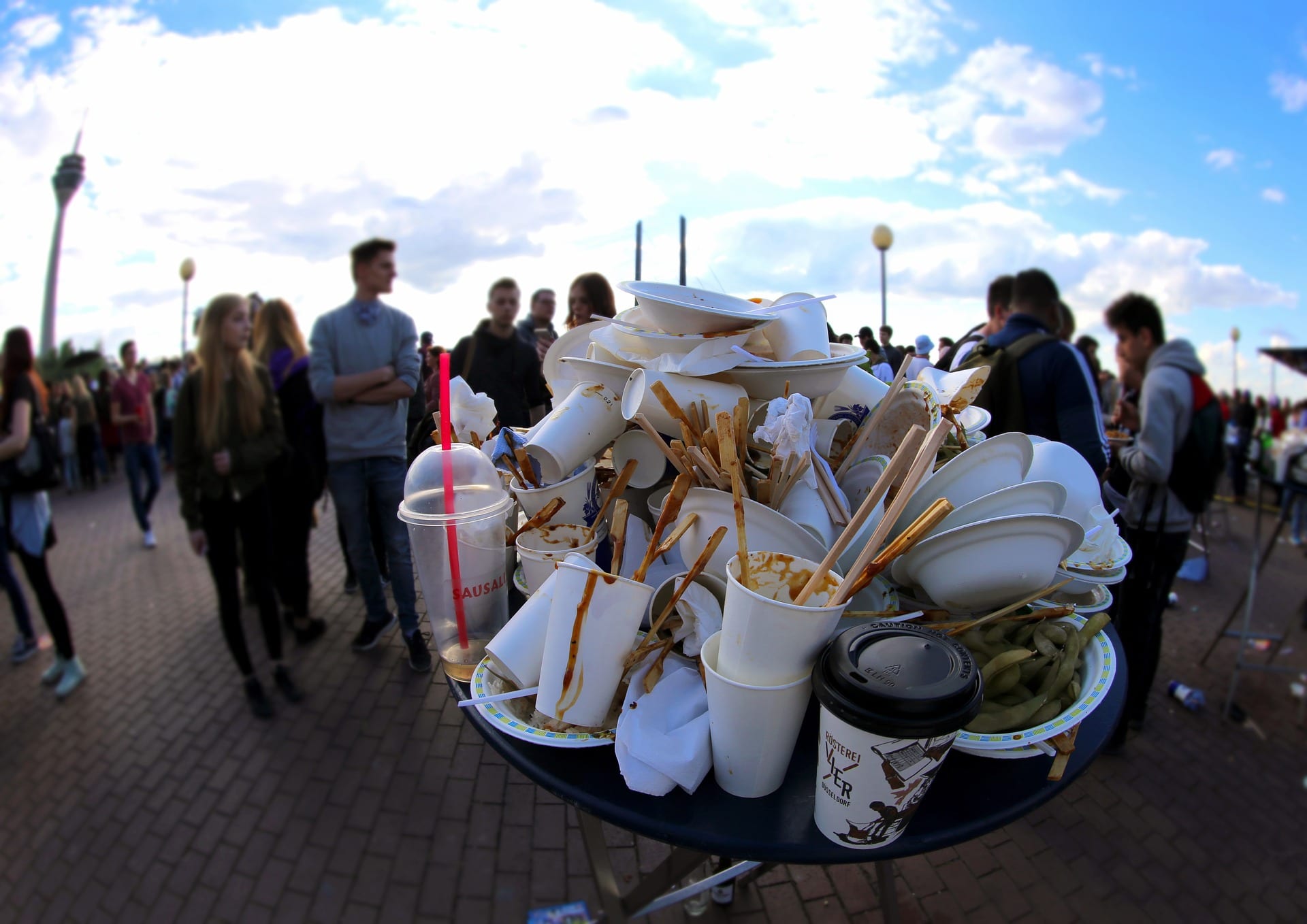While planning a business or industrial event, you need to make numerous arrangements. From selecting the location to set up equipment, you also need to take care of the environment. You may or may not know that events contribute significantly to water, soil, and air pollution.
Though you cannot bring the waste down to zero, you can make it somehwat sustainable. The Australia National Waste Policy has laid down certain regulations to be followed by individuals, communities, government, and businesses.
You can follow the event guide that offers beneficial techniques to conduct sustainable events. However, this article will discuss how events damage the environment and what measures you can adopt to manage event waste.
What Impact does Event Waste have on the Environment?
Any big or small event generates a massive amount of waste. These include promotional materials, carrier bags, water bottles, food, banners, leaflets, tickets, show guides and many more. And that’s along with energy generated from heating and cooling, lighting and water. The list is too long to cover.
For example, if a three-day event is hosted for a thousand people, about 5670kg of waste is generated, whose weight is equal to that of four compact cars. You can now consider how much waste is accumulated from an event held every week worldwide.
Therefore, you need to adopt sustainable thinking to manage event rubbish. It is difficult to align your budgeting and marketing strategies with environmental issues. However, by adopting sustainable thinking, you can add some value to the brand that shows your effective responsibility towards the environment.
From the business point-of-view, there has been an increase in the cost of raw materials. So, if you recycle, reuse and reduce waste, you can substantially decrease the costs. Reducing cost means you can organise an amazing event by practising waste management to meet the present needs without compromising future needs.
Measures to Adopt To Manage Waste in Events
The basic mantra to minimise waste at any event is to reduce, reuse and recycle. You use resources more productively when you minimise demand and maximise recycling, recover and reuse of materials.
Apart from that, you can follow the below-mentioned measures to plan out event waste management.
Minimise Paper Use
It’s time to chant a new slogan, “Go Paperless.” Each industry makes use of paper to generate marketing supplies like brochures and leaflets. The materials are crucial to sending information to their targeted customers.
However, industries should minimise the use of paper to protect the environment. But how? Let’s read some of the tips.
- Do not send attendee packs before the start of the event. Instead, hand it out to the attendees when they arrive at the event. It minimises paper usage and eliminates duplication chances.
- Provide handouts only when requested.
- Print on both sides to save pages.
- Keep printer and laptop at the booth to print the requested literature at any time.
Using Sustainable and Well-Sourced Resources
You want your booth to provide all the necessary resources and information that your customer requires. However, this is possible even while using reusable, sustainable and well-sourced resources.
If you want to print hard copy posters, banners, or literature, you can apply eco-friendly solutions like chlorine-free paper and recycled paper. The stands can be reused and re-designed instead of throwing them away after every event. You can design them with clean processes to eliminate harmful fumes and toxins.
Instead of buying new equipment at every event, you can borrow or rent the equipment. By doing so, you can reduce transport emissions and waste while moving the items.
Going Digital
Everything is going digital in this contemporary world. People are engrossed in technology such that the industries are employing digital technologies everywhere. By going digital, the industries can show their excellence in the digital sector while reducing hard copy items.
You must know that electricity can be easily sustained compared to paper production. You can make use of digital passes or e-tickets for your attendees. Furthermore, develop an application if you have resources that include pre-show information and documents.
You can also consider taking a tablet or i-phone at the booth to encourage people to discover more about your services and brand with those high-quality displays. Also, ask a professional to implement Virtual Reality and Augmented Reality to showcase how you reduced waste.
Say No To Plastic
Events mean excessive use of plastic at shops and food counters. But, you can organise and host an event without using one single plastic. Even if you need plastic, ensure that you can reuse and recycle it numerous times.
You can make a few items or materials reusable by not making them specific to a particular event. The items include display stands, lanyards or name badges which you can use frequent times.
Plastic water bottles are commonly found waste at events. To prevent plastic waste, you can install a water dispenser with glasses to minimise plastic usage. Also, you will save money because tap water is inexpensive compared to bottled water.
Employing Waste Stations at the Booth
You can place different waste bins at your booth with clear labels to minimise rubbish at your event. You can also offer some prize like freebies for those who can sort the waste efficiently. It will attract customers to your booth.
Donation bins are another great example to collect items which the attendees have picked up from other booth but don’t require it any longer. They can dump the materials in your donation bin.
Lastly, you need to keep the organic waste separate from other waste before composting.
Promote and Educate
All your volunteers and staff members should be given full training on minimising waste at the event. Further, they can reciprocate their learning to educate the general public to minimise waste.
It is necessary to educate customers so that they know what your waste reduction aims are. It is as essential as educating and informing your contractors, sponsors and vendors.
Always keep your ideas consistent and simple that involves event waste management. If you are working to initiate a plastic ban in an event, let the customers know to bring reusable bottles. Also, inform your initiative before time so that your customers can make the necessary arrangements.
The industries can do promotions by hanging signs across the city, press releases word-by-mouth, e-ticket, radio ads, TV, blogs or social media. These are well-sourced places to promote your business and events.
Making of a Sustainable event
Now that you have read the measures for effective waste management, it’s time to plan out making a sustainable event.
It includes five steps:
- Testify the impact: Before you improve things at your event, you should check how your event impacts the environment.
- Make a well-structured plan: Once you know the environmental impacts, you can set realistic objectives to improve your event. Create a well-thought strategy and get it checked by a professional.
- Ask contractors: Your contractors can help you find solutions to reduce the environmental impact.
- Organising essential waste management: Place bins strategically over the place and label them appropriately.
- Begin with simple strategies: Most organisers are now following the going green initiative. They discourage the use of the car and encourage cycling and walking to the event. This will minimise traffic as well as pollution.
Final Thoughts
Every week there is an event hosted in different corners of the world. And every event results in waste accumulation and pollution. Therefore, it’s high time to manage the waste in events to protect human health and the environment.
Event organisers and industries must take the responsibility to make use of resources efficiently. That is by maximising reduce, reuse and recycle mantras as your tips for waste management.

